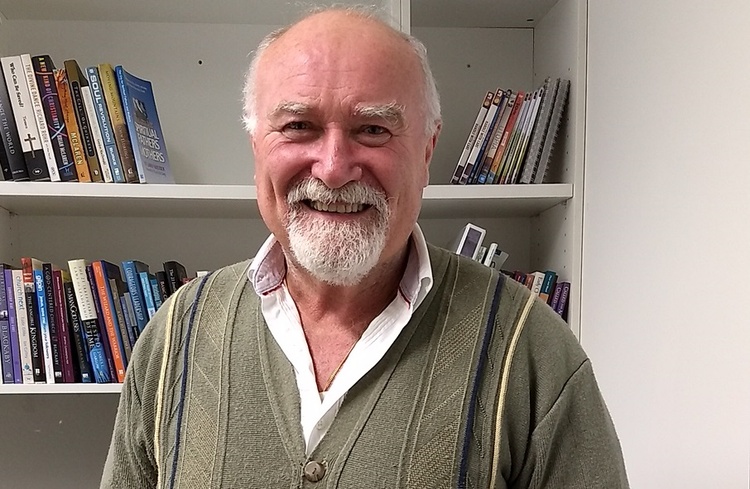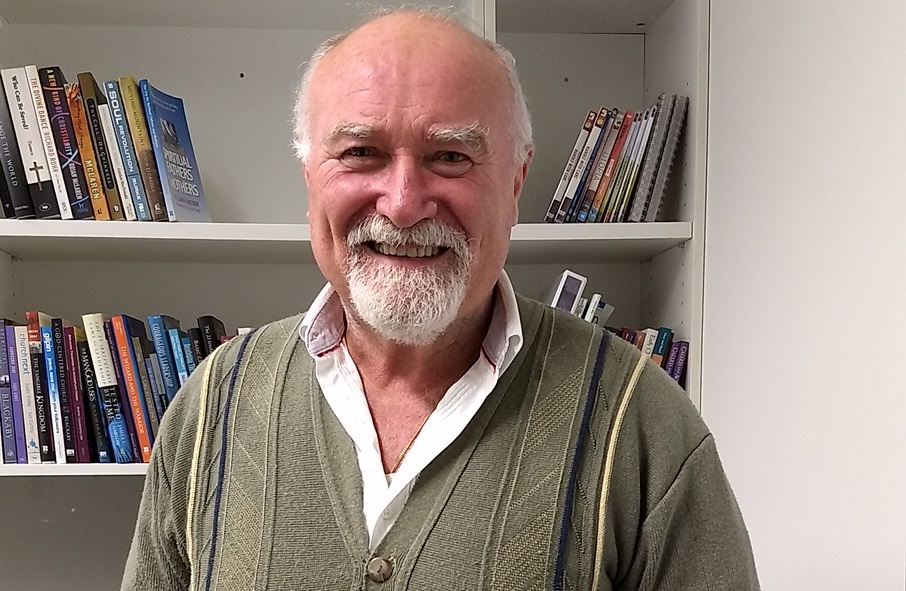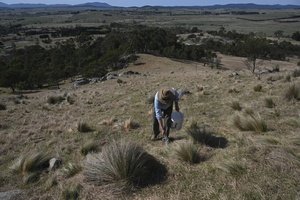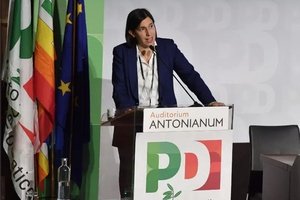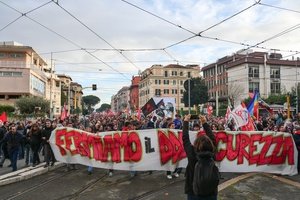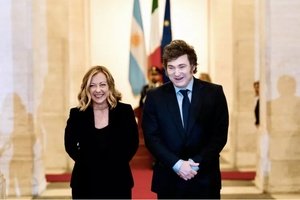These are the words of Peter Cipollone, a man who may have lived a very different life had he never arrived in Australia.
During this year’s Queen’s Birthday Honours, Mr Cipollone received a Medal (OAM) of the Order of Australia in the General Division “for service to people who are deaf or hard of hearing, and to education”.
“It was very affirming to receive this recognition,” he said.
“I’ve worked in deafness for most of my working life, so it’s a tremendous honour and I was very humbled.”
Mr Cipollone has worked with the deaf community in Australia for around 40 years, and has been involved in almost every development within the community since he joined the Deaf Society of NSW as a welfare worker in 1997.
Since then, he went on to become a senior welfare worker for the same society, helped establish an adult education centre for the deaf community, worked for the government providing career advice and job placement assistance to deaf people, and was the principal of a school for the deaf and hearing impaired, to name a few.
Mr Cipollone was also involved in the lobbying for access to telecommunications, including the provision of TTYs and relay services, and was a driving force in the establishment of a retirement village for deaf people, arguing that they are part of a cultural minority with their own language, rather than a disabled community.
Where does Mr Cipollone’s strong connection with the deaf community stem from?
“Sometimes people say it’s because I’m Italian and I’m used to gesticulating,” he laughed.
On a more serious note, his longstanding relationship with the deaf community was born out of a great sense of empathy.
Mr Cipollone was born in the ancient village of Fara San Martino, located on the foothills of a towering mountain in Abruzzo.
His parents were peasant farmers with very little prospect of finding regular work, and his childhoods memories are of tough times in adverse conditions.
He lived in a stone house built into the rugged mountainside with a stable housing a donkey, used for transport, and two cows, used to make money from milk.
Snow inundated the area during the bitter winter months and washed clothes left hanging inside to dry would freeze overnight.
“If I’d stayed there I’d probably be herding sheep today,” Mr Cipollone explained.
Instead, his parents decided to venture to the other side of the world in search of a more promising life, a risky decision which meant no turning back.
“We’ve had opportunities that didn’t exist at that time, and they made an incredible decision,” Mr Cipollone explained.
His father Antonio arrived in 1959, sponsored by a brother who had come over a few years earlier, and worked for three years before the rest of the family joined him.
“We came to this new country that seemed incredibly hot, with strange weatherboard houses,” Mr Cipollone recalled.
Having migrated to Australia in 1962 at the age of eight, Mr Cipollone experienced first-hand what it was like to arrive in a new and unfamiliar country, where he couldn’t speak the language, at a time when ignorance and discrimination towards people from different cultures were prevalent.
“I recall very distinctly that things were happening around me that I didn’t understand and in some respects, that parallels life for deaf people,” he said.
“I grew up very tough and saddened by the level of discrimination, but that, in many ways, was wonderful preparation because it made me incredibly passionate.”
Since retiring, Mr Cipollone has maintained his ties with the deaf community on both a social level and through his passion for restoration.
Considered a heritage building specialist, Mr Cipollone’s experience with construction dates back to when he was nine years old and would come home from school to clean bricks that his father could then use to add a room to the house.
During his early adulthood, he also did a night course for building and spent some time working for a building company before returning to work with the deaf community.
Mr Cipollone also restored around seven family homes, despite his children’s resentment of the dust and mess, and used this experience to breathe life into his vision for Thornton Hall in Penrith, NSW, in 2014.
“I came across an expression of interest for someone to acquire Thornton Hall and come up for a use for it,” Mr Cipollone recalled.
“It was a coming together of an interest in construction and heritage and my education background, and I thought it had great potential as a childcare centre.”
Mr Cipollone is about eight weeks from completing the restoration of the heritage building, where Sheffield Shield Cricket began and where some of the first flights in Australia took off from, and transforming the historic site from a shabby building covered in graffiti into its former glory.
What makes the restoration process unique is that Mr Cipollone called on deaf tradesmen to realise his vision, including two carpenters, two bricklayers, a tiler, a welder and a painter who has created a massive mural of Noah’s Ark on the interior.
“It’s a great working environment because these guys are usually used to being alone on a site,” he said.
“There’s a lot of exchange and it’s a natural situation to be in.”
Some of the tradesmen hired by Mr Cipollone were men he had supported and signed for in the TAFE system, and are just one example of the lifelong connections he has made through his work with the deaf community.
Mr Cipollone has also fostered many enduring friendships and connections through his work, a sign of his genuine bond with the community he has served for around four decades.
Though Mr Cipollone could have quite easily lived a peasant existence in the mountains of Abruzzo, destiny had other plans.
Everything, from his Italian identity and migrant experience to his natural compassion, has led him on a path of success within the Australian community, a great success he could have never dreamed of as he first set foot on Sydney soil.

